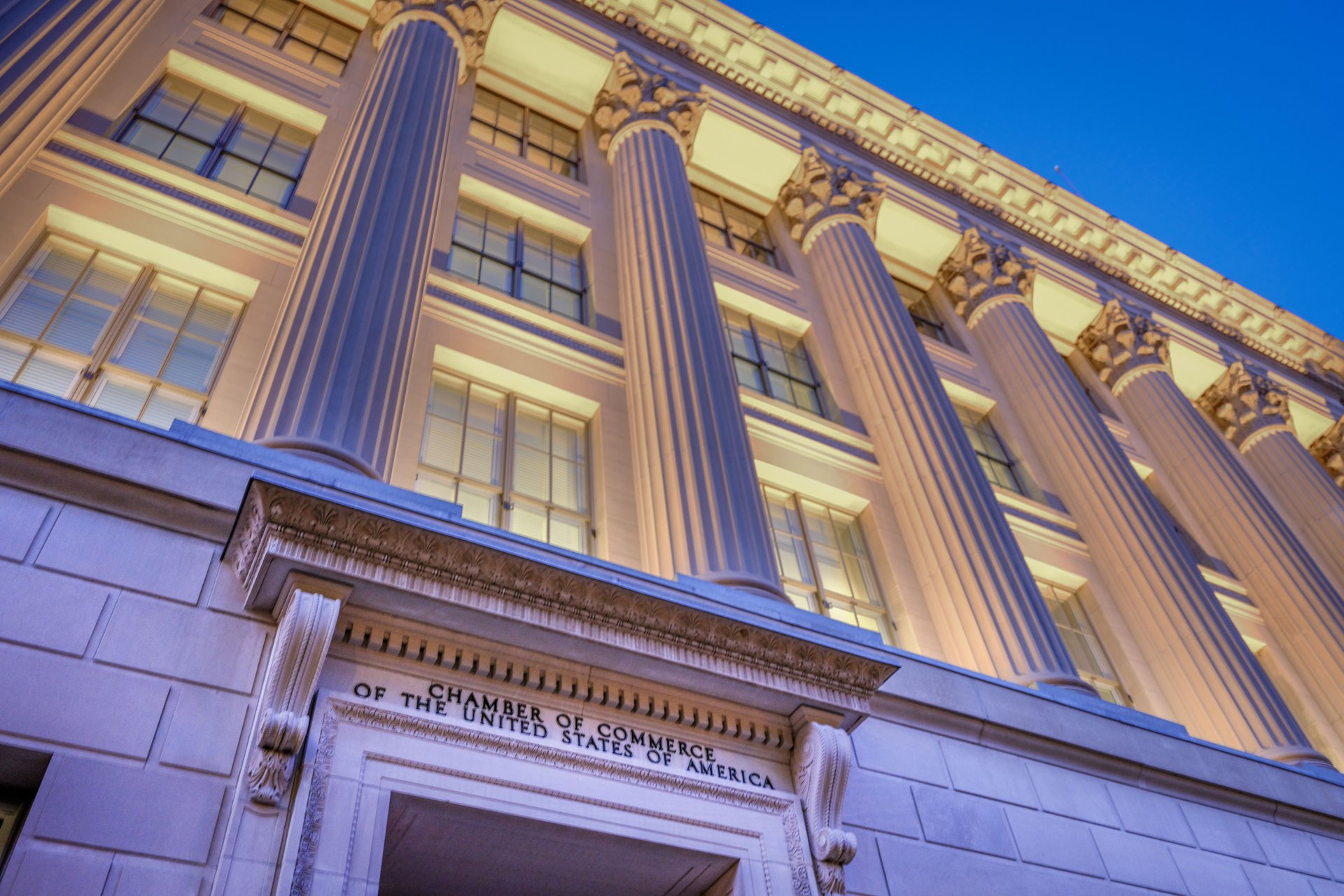The Chamber of Commerce sues Trump to block $100,000 H-1B visa charge
The lawsuit is the first major legal challenge from a prominent business group against White House efforts to remake the economy

The side entrance to the U.S. Chamber of Commerce headquarters building is seen at dusk on April 24, 2025, in Washington, DC. (J. David Ake/Getty Images)
The Chamber of Commerce sued the White House on Thursday to block its proposed overhaul of H-1B visas, arguing that President Donald Trump had overstepped his authority in seeking the changes, which included a sizable $100,000 one-time charge.
Suggested Reading
The lawsuit, filed in Washington D.C. federal court, is the first major legal challenge from a prominent business group against the White House's efforts to remake the U.S. economy. Trump rolled out the proposed changes last month, causing chaos and confusion among businesses of all sizes with foreign nationals on their staff.
Related Content
“The new $100,000 visa fee will make it cost-prohibitive for U.S. employers, especially start-ups and small and midsize businesses, to utilize the H-1B program," said Neal Bradley, chief policy officer at the U.S. Chamber of Commerce, in a statement. He added that Congress had jurisdiction over the program, which it created to help facilitate the hiring foreign workers with specialized knowledge in fields such as tech and healthcare.
The H1-B visa has grown popular among tech companies in particular; Amazon, Meta, and Microsoft report the highest number of visa approvals, which do not translate into a path to citizenship for visa-holders. Tesla CEO Elon Musk championed the program late last year.
The White House did not immediately respond to a request for comment.
In its complaint, the Chamber argued that Trump had encroached on authority that's reserved for Congress with his overhaul of the visa program.
“The Proclamation does precisely that: It blatantly contravenes the fees Congress has set for the H-1B program and countermands Congress’s judgment," the complaint said.
The H1-B visa has been a frequent target of immigration hardliners, who view it as a pipeline for cheaper labor to secure entry in the U.S. and displace American workers. The White House had robustly defended its changes and a spokesperson told Quartz last month it was attempting to end "abuse" of the system.
